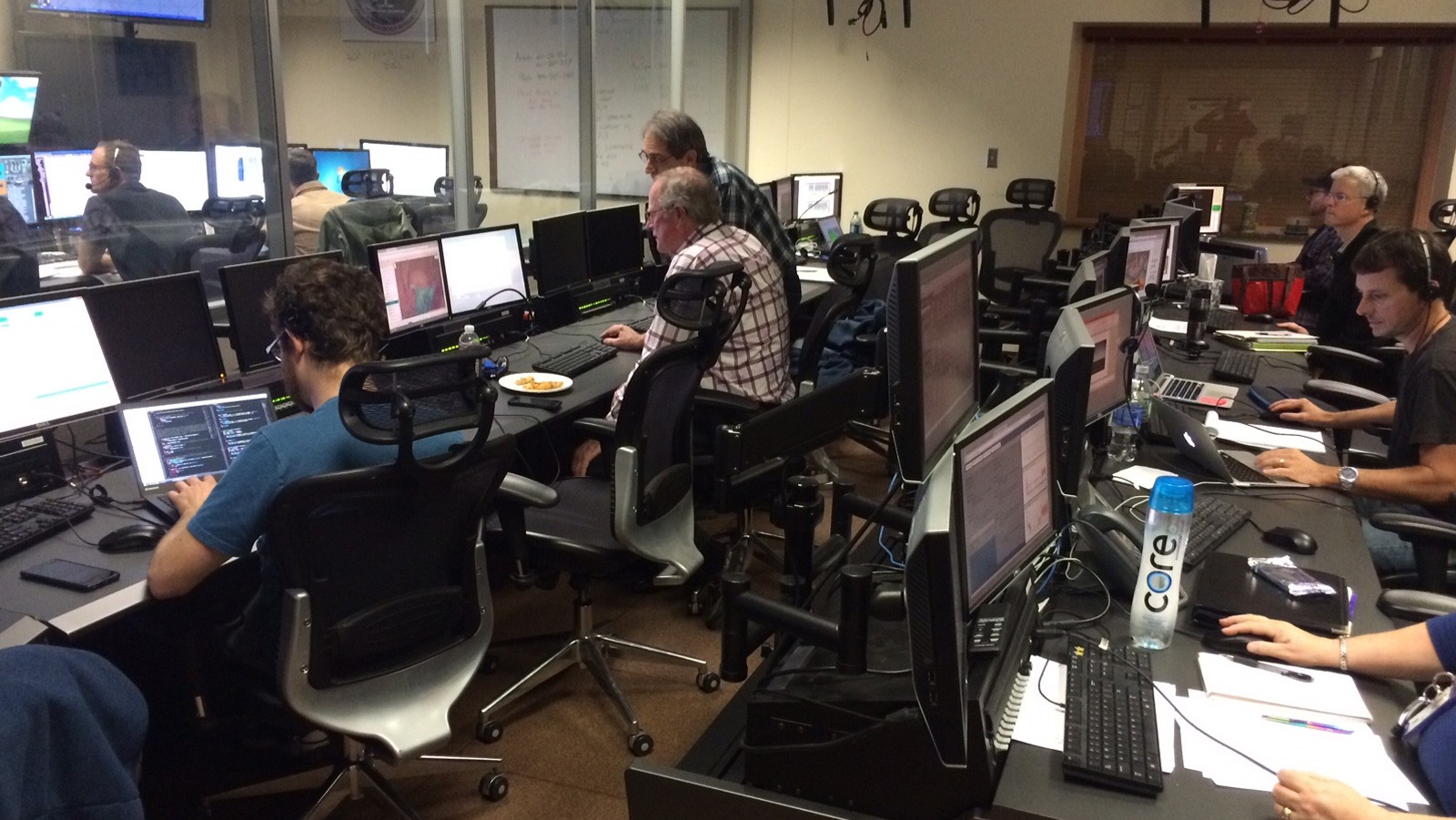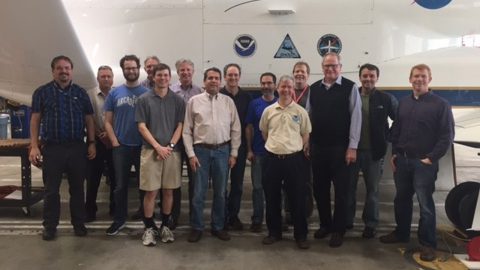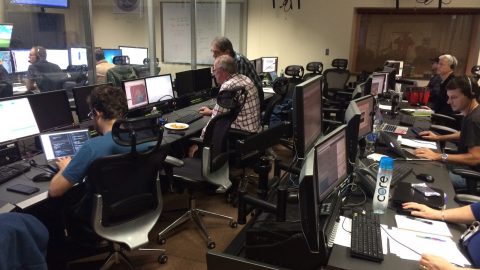AOML hurricane researcher Jason Dunion participated in NOAA’s El Niño Rapid Response Field Campaign, a comprehensive land, sea, and air sampling effort in the tropical Pacific, to study the current El Niño and improve weather forecasts thousands of miles away. Dunion was part of the team of NOAA scientists and partners that deployed NASA’s Global Hawk unmanned aircraft, a key asset for the Sensing Hazards with Operational Unmanned Technology (SHOUT) project led by researchers with NOAA’s Unmanned Aircraft System Program. The Global Hawk carried a suite of meteorological sensors and dropped parachuted weather instruments during four research flights in February in the eastern Pacific, near the U.S. West Coast. Data from the flights will help improve the models that are used to support weather forecasts. The data will also provide insights that researchers hope will improve year-to-year El Niño forecasts, as well as the accuracy of the models predicting the longer-term effects of climate change.
Photo credit: NOAA
Image Caption
El Niño Rapid Response project members, including AOML’s Jason Dunion (second from right) in front of the Global Hawk at NASA’s Armstrong Flight Research Center at Edwards Air Force Base. Image credit: NOAA


